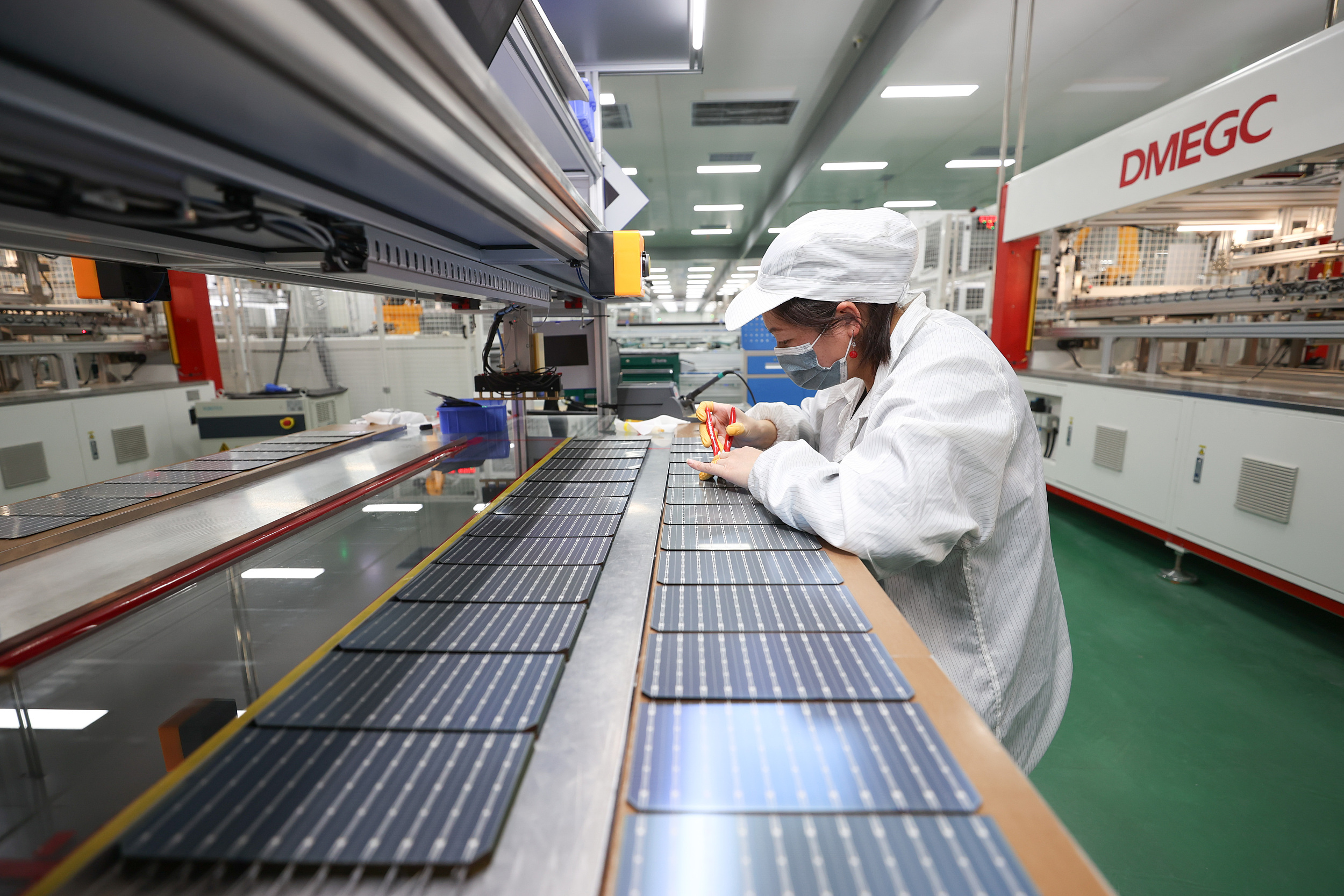Measures to Facilitate Private Enterprise Financing

A staff member works on the photovoltaic panel production line of a company in Lianyungang city, east China's Jiangsu province. (PHOTO: VCG)
By CHEN Chunyou & DAI Xiaopei
A circular on strengthening financial support for private enterprises was issued in late December by the People's Bank of China and the National Administration of Financial Regulation, along with six other departments. It contains 25 measures to protect the private economy and stimulate the vitality of private enterprises.
Banks and related financial institutions (FIs) are encouraged to address the financing needs of private enterprises that are facing temporary difficulties but have marketable products, promising projects or competitive technologies. The circular said abruptly halting, withdrawing or reducing loans to such enterprises without proper consideration should be avoided.
With the introduction of more supporting rules, the financing environment of the private economy will be significantly improved, said Long Fei, director of the Small and Medium-sized Enterprises Research Institute at the China Center for Information Industry Development.
The circular aims to increase support for private enterprises in sci-tech innovation and green and low-carbon initiatives, and provide support for enterprises that use special and sophisticated technologies to produce novel and unique products.
Long said private enterprises in these sectors currently face multiple hurdles in accessing financial resources. One major challenge is to obtain credit support, particularly first-time loans, credit loans, long-term loans and loans without repayment of principal. In addition, the collateral guarantee and movable pledge mechanisms are still imperfect, with banks and FIs accepting a narrower range of collateral. They also have a low effective collateral rate.
Another issue is the difficulty in obtaining mortgage guarantees and an inadequate mechanism for movable pledges. Furthermore, the threshold for direct financing is high, with only a small number of private enterprises eligible for equity and bond financing. The regional equity market also does not fully fulfill its financing function.
To address these problems, Long suggested further optimizing the regulatory assessment of FIs and internal incentives. This would link support for the private economy with the performance assessment of the banking industry, encouraging FIs to provide loans more readily.
He recommended reducing the threshold for accessing the financial market and utilizing the multilevel capital market to promote direct financing for high-quality private enterprises. He also said the implementation of various preferential financing policies should be accelerated to ensure that more private enterprises benefit from these initiatives.
Dong Ximiao, chief researcher of Merchants Union Consumer Finance Company Limited, identified three common deficiencies faced by private enterprises: a lack of data, credit, and guarantee.
Dong suggested optimizing the credit, bond, and capital markets to address the financing problems of private enterprises and create a better financial environment for their development. He emphasized that banks should increase credit loans while maintaining manageable risks, and improve the proportion of direct financing in private enterprise financing, so as to make their services more targeted.







